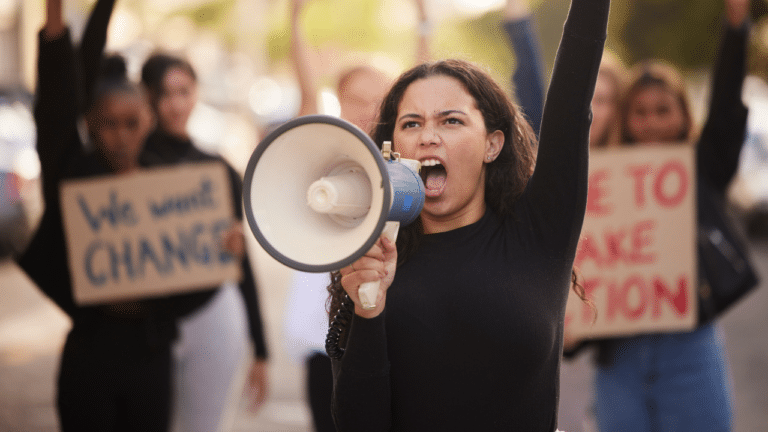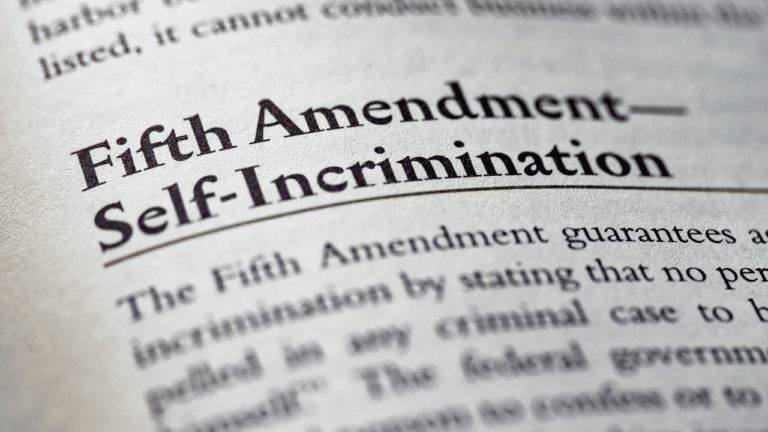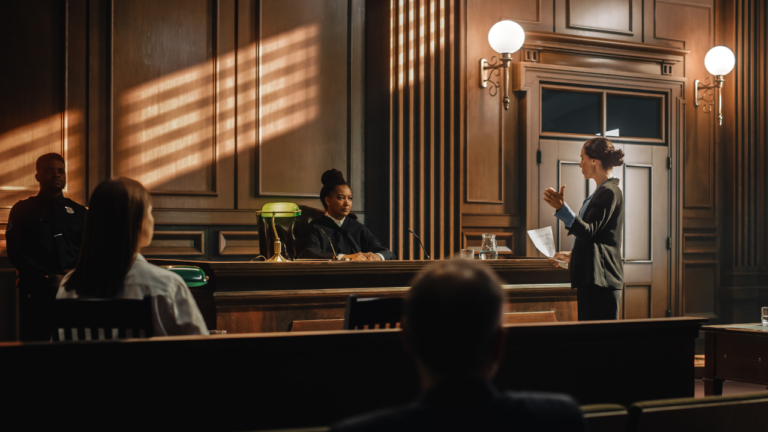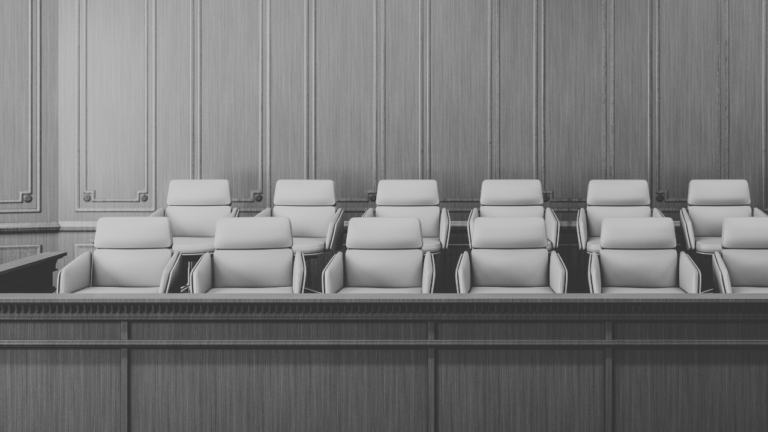The Third Amendment to the Constitution of the United States protects the American people against the encroachment by the military against civil authority.
WHAT IS THE TEXT OF THE THIRD AMENDMENT TO THE UNITED STATES CONSTITUTION?
U.S. Const. Amend. III. QUARTERING SOLDIERS.
No Soldier shall, in time of peace be quartered in any house, without the consent of the Owner, nor in time of war, but in a manner to be prescribed by law.
WHAT IS THE BACKGROUND AND CONTEXT OF THE THIRD AMENDMENT IN THE BILL OF RIGHTS?
The right to be free from involuntary quartering of soldiers has its roots in English history, and was written into the Declaration of Independence when Thomas Jefferson cited one of many grievances by King George III: “He has kept among us, in times of peace, Standing Armies without the Consent of our legislatures.”
The Framers of the U.S. Constitution, including John Adams, Thomas Jefferson, and James Madison, recognized the importance of protecting individual liberties from government intrusion. Their intention, made clear by the Preamble, was to “form a more perfect Union, establish Justice, insure domestic Tranquility, provide for the common defense, and promote the general Welfare.”
To assuage the Democratic-Republicans and Anti-Federalists, framer James Madison drafted the first ten constitutional amendments, known as the Bill of Rights, based on the desire to avoid another tyrannical government they had fought so hard against. The Federalist party secured the ratification of the U.S. Constitution by promising the addition of amendments codifying fundamental liberties outlined in the Bill of Rights.
The Bill of Rights guarantees fundamental freedoms often restrained by despotic, oppressive governments. It encompasses “the great rights” such as the first amendment freedom of speech and the press, the fourth amendment right to be free from unreasonable government searches and seizures, and the second amendment right to keep and bear arms. They are considered the “choicest privileges of the people” in the United States, and are protected from government overreach. Many of these rights were incorporated through the Fourteenth Amendment Due Process Clause to apply to state governments as well as the federal government.
The first ten amendments were proposed to several state legislatures by the First Congress on September 25, 1789. New Jersey was the first State to ratify the Bill of Rights on November 20, 1789, followed by Maryland, North Carolina, South Carolina, New Hampshire, Delaware, Pennsylvania, New York, and Rhode Island in 1790. Vermont and Virginia ratified the Bill of Rights in 1791, resulting in its adoption. The Legislatures of Connecticut, Georgia, and Massachusetts held out on ratification until 1939.
WHAT IS THE HISTORICAL ORIGIN OF THE THIRD AMENDMENT TO THE UNITED STATES CONSTITUTION?
The Third Amendment to the United States Constitution protects Americans from involuntary quartering of soldiers in their homes.
Anglo-American anti-quartering provisions date back to Norman England. In 1131, the London city charter prohibited quartering soldiers within the city walls, a trend that eventually spread to the English countryside. In 1627, Parliament issued a “Petition of Right” decrying receiving soldiers into private homes as a “great grievance and vexa[t]ion of the people.” But the prohibition did not extend to the British colonies.
The earliest quartering of British troops in colonial homes dates back to King Philip’s War in New England in 1675. In 1765, Parliament passed a quartering act requiring colonists to bear the costs of quartering and supplying British troops for the French and Indian War. The Quartering Act of 1774 was the fourth of what became known as the Intolerable Acts, and were part of the final impetus for the American Revolution. This practice came under attack as despotic, dangerous, and violative of American rights, and the Third Amendment was a direct response to this history of involuntary quartering during times of both war and peace.
Given its centuries-old predecessors, its apparent practical necessity, and its strong philosophical foundations in Anglo-American law, the Third Amendment was ratified with uniquely little debate or controversy, and a high margin of support. Since then, however, the Amendment has slipped from being a universally recognized right of worth inclusion in the nation’s most sacred document, to being virtually unknown and underutilized for over two hundred years. James P. Rogers, Note, Third Amendment Protections in Domestic Disasters, 17 Cornell J.L. & Pub. Pol’y 747 (2008).
HOW DOES THE THIRD AMENDMENT TO THE UNITED STATES CONSTITUTION APPLY?
The Third Amendment of the Constitution of the United States is rarely cited or invoked, because it was considered a foregone conclusion even when it was enacted. However, courts and litigants have used the Third Amendment to bolster claims for various property and privacy rights. Occasionally, litigants have used the Third Amendment to highlight the constitutional checks placed on the military. It has been litigated in a federal court of appeals once:
- In Engblom v. Carey, in response to corrections officers at a state penitentiary going on strike for being evicted from their facility-residences, the governor of New York called the National Guard to maintain order at the prison. The guardsmen stayed 11 days in the state-owned dorms previously used for corrections officers, who were denied access to their apartments while the Guardsmen were staying there. The corrections officers sued the governor, claiming a Third Amendment violation. The Second Circuit held the corrections officers had a right to exclude the Guardsmen, who were soldiers.
During crises and war, civilians have concerns that eclipse their desire to protect their homes from invasion. They readily consent to quartering when threatened by a common enemy. But in the case of domestic disasters, the government’s ability to take more license with invading the home and privacy is dangerous, because when the rule of law fails, there are no institutional safeguards other than the military itself against civil liberties violations.
IS THE THIRD AMENDMENT TO THE UNITED STATES CONSTITUTION STILL USED?
The Third Amendment has served as a building block for litigants to construct arguments for analogous rights because it was enacted to prevent the arbitrary exercise of power. Elbridge Gerry, a member of the first Congress, opined the Third Amendment was enacted to preserve civilian rights, which meant “[t]he military ought to be subordinate to civil authority.”
In practice, however, the Third Amendment is rarely invoked, likely due in part to the lack of jurisprudential guidance. In other words, “it [is] useless simply because it ha[s] never been used.” James P. Rogers, Note, Third Amendment Protections in Domestic Disasters, 17 Cornell J.L. & Pub. Pol’y 747 (2008).
In modern times, the Third Amendment may be used during disasters that incapacitate a civilian government. If the government uses military forces to maintain order, the Third Amendment functions to protect individual rights, and curb expanding executive and military power.
THIRD AMENDMENT TO THE UNITED STATES CONSTITUTION
“[The Third Amendment’s] plain object is to secure the perfect enjoyment of that great right of the common law, that a man’s house shall be his own castle, privileged against all civil and military intrusion.”
—Joseph Story, Commentaries on the Constitution of the United States § 1893 (Leonard W. Levy ed., De Capo Press 1970) (1833).
The modern application of the Third Amendment may function as a check on using the military to maintain civil order, which can endanger civil liberties. The use of militaries in law enforcement does not further democratic values, as soldiers are trained to fight, not to be peace officers. Their actions reflect this training. The Third Amendment can serve to lighten the heavy-handedness of military actions designed to maintain order.
THIRD AMENDMENT COURT CASES
The United States Supreme Court has seldom interpreted and applied the Third Amendment since its adoption in 1791, but other federal courts have used the Third Amendment to interpret other laws in addition thereto.
- In Engblom v. Carey, the Second Circuit held that National Guardsman were soldiers for Third Amendment purposes, and the Fourteenth Amendment incorporated the Third Amendment against the States. Therefore, putting up National Guardsman in prison staff housing during a strike by the staff violated the Third Amendment.
















